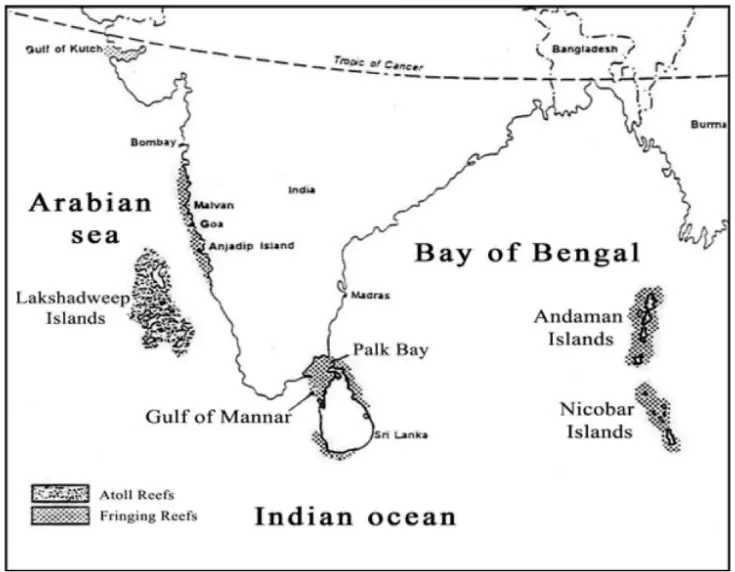![]() 25 Jul 2025
25 Jul 2025
English
हिन्दी

A 24-year-long coral reef monitoring study in the Lakshadweep islands reveals a 50% decline in coral cover since 1998 due to recurring marine heatwaves driven by climate change.
| Marine heatwaves are prolonged periods of unusually warm ocean temperatures that disrupt marine ecosystems, coastal livelihoods, and economies.
They typically form during hot, dry, and calm weather, which prevents the mixing of warmer surface waters with cooler layers beneath. |
|---|
Coral Bleaching
|
|---|
 When these deposits build up in shallow water, they form reefs, which can later evolve into islands.
When these deposits build up in shallow water, they form reefs, which can later evolve into islands. <div class="new-fform">
</div>